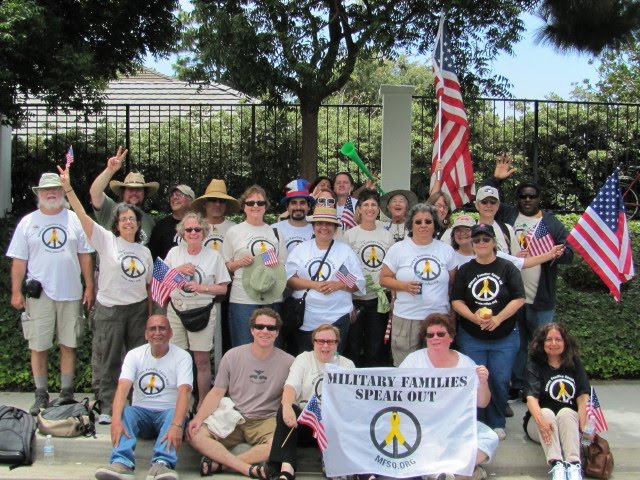By Tom Hayden - November 10, 2008, 12:33PM
New revelations about Georgia's August war with Russia should send a warning to president-elect Barack Obama about how a commander-in-chief can be manipulated into war.
It now appears that the same neo-conservatives who manipulated the US into the Iraq war on false evidence were directly involved in backing Georgia's ill-fated operation on August 7-8, which eyewitness military observers have described as indiscriminate attacks by Georgia on Russian and civilian positions. The observers reports, first made in August and then October to the Organization for Security and Cooperation in Europe, were disclosed in the New York Times three days after the presidential election. [NYT, Nov. 7]
The new evidence increases the likelihood that the August 7-8 clash between Georgia and Russia was an "October Surprise" that would highlight John McCain's greater foreign policy experience at the height of the presidential election.
The Georgia fighting occurred immediately before the Democratic convention in Denver. McCain, the leading public advocate for Georgia, immediately declared "we are all Georgians now" and promised "to blast Russia." Obama, on vacation in Hawaii, at first called for greater diplomacy, but quickly fell in line with a bipartisan consensus of national security advisers and the mainstream media. Obama's national security adviser, Susan Rice, openly applauded the White House for its rapid response, including support for NATO's inclusion of Georgia and the Ukraine and a one billion dollar emergency appropriation.
The newly-released evidence for the "October Surprise" now deserves deeper reflection by Obama and his advisers, and greater investigation by the mainstream media.
The trail of evidence stats with Randy Scheunemann, McCain's top foreign policy adviser and former director of the Committee for the Liberation of Iraq, which secured some $90 million in federal funds to lobby for the fabricated agenda of Iraqi exiles like Ahmed Chalabi leading to the Iraq invasion.
Scheunemann became a registered foreign agent for Mikheil Saakashvili's Georgian government when it came to power in 2004, making $800,000 in fees for his lobbying firm, Orion Strategies, until the relationship on May 15 was formally terminated under McCain's 2008 campaign rules.
In those years, McCain traveled to Georgia more than once, nominated his "close friend" Saakashvili for a Nobel Prize in 2005, engineered support for Georgia through the Republican Democracy Institute, and supported the US training of combat forces there. With Schuenemann as his adviser, Saakashvili had campaigned on a platform of taking back South Ossetia and Abkhazia. Schuenemann was also his lobbyist when Saakashvili sent troops to retake two other separatist enclaves, Ajaria in 2004, and upper Kodori Gorge in Abkhazia in 2006, both over Russian objections. Schuenemann and McCain visited Georgia again in 2006.
Scheunemann invented the neo-conservative battle cry of "rolling back rogue states", used by McCain in a 1999 speech, an echo of the Cold War strategy of rolling back the Soviet Union, and was a paid lobbyist for Latvia, Macedonia, Romania, and the so-called Caspian Alliance, a consortium including British Petroleum, Chevron and Conoco building a pipeline through Georgia to bypass the former Soviet Union.
Scheunemann attacked Secretary of State Condoleezza Rice in 2006 for "appeasement" of Russia over Georgia, suggesting the same tensions between the neo-conservatives, McCain, and Cheney's office versus the State Department that undermined rational assessments in the runup to Iraq. [Financial Times, Oct. 21, 2006]
Now that Georgia's August 7 operation appears to have been pre-planned and deliberate, is it possible to believe that Scheunemann was unaware of a scenario that closely matched the August 1964 Gulf of Tonkin incident? Before this becomes yesterday's news, someone should ask what did he know and when did he know it? Did the US advisers to the Georgian military know and not report the facts? In the unlikely event that they were uninformed and uninvolved, the McCain team was quick to exploit the moment to attack Obama for inexperienced wobbling.
There followed a complete acquiescence by the Democrats, led by Obama's national security advisers, whose Cold War conditioning apparently trumped their own experience of being manipulated into the Iraq war. Or was a political decision made that Obama could not afford to appear weaker than McCain on Russia? A reignited Cold War would have been fused with the War on Terrorism in one dominant paradigm.
Now that they are in opposition, there is little doubt that the neo-conservatives will continue their strategy of confrontation on the Russian border. These are people who deliberately exaggerated the Soviet military threat in the Reagan years, developed the Project for the New American Century [where Scheunemann was a director], fabricated evidence about Saddam's arsenal, and seemingly have never stopped. They could destroy an Obama presidency by demanding expenditures for multiple wars which America cannot win and cannot afford, or alternatively accusing him of weakening America in the world.
The important cautionary lesson for Obama is that his initial instincts favoring diplomacy were correct while his national security advisers failed him. There is a parallel with the early days of the John Kennedy presidency, when the national security establishment presented a plan for invading Cuba to a young president eager to prove his national security mettle. If Kennedy rejected the Bay of Pigs invasion, he would have been accused of weakness and treason. When the invasion turned into a debacle - the Cubans had detailed information about the training and landing sites - Kennedy was quoted later as wishing he could tear the CIA into a thousand pieces. Indeed, if the national security advisers had prevailed against the secret diplomacy of the Kennedy brothers, there might have been nuclear war over Cuba. John Kennedy's deep questioning of the Cold War began with those disastrous experiences.
Vice president Joe Biden famously warned that Barack Obama would be tested over national security policy in the first months of his tenure. That the testing may come from within the national security establishment, not only from foreign sources, should give Obama pause as he contemplates the time ahead.
Subscribe to:
Post Comments (Atom)





























































































































No comments:
Post a Comment